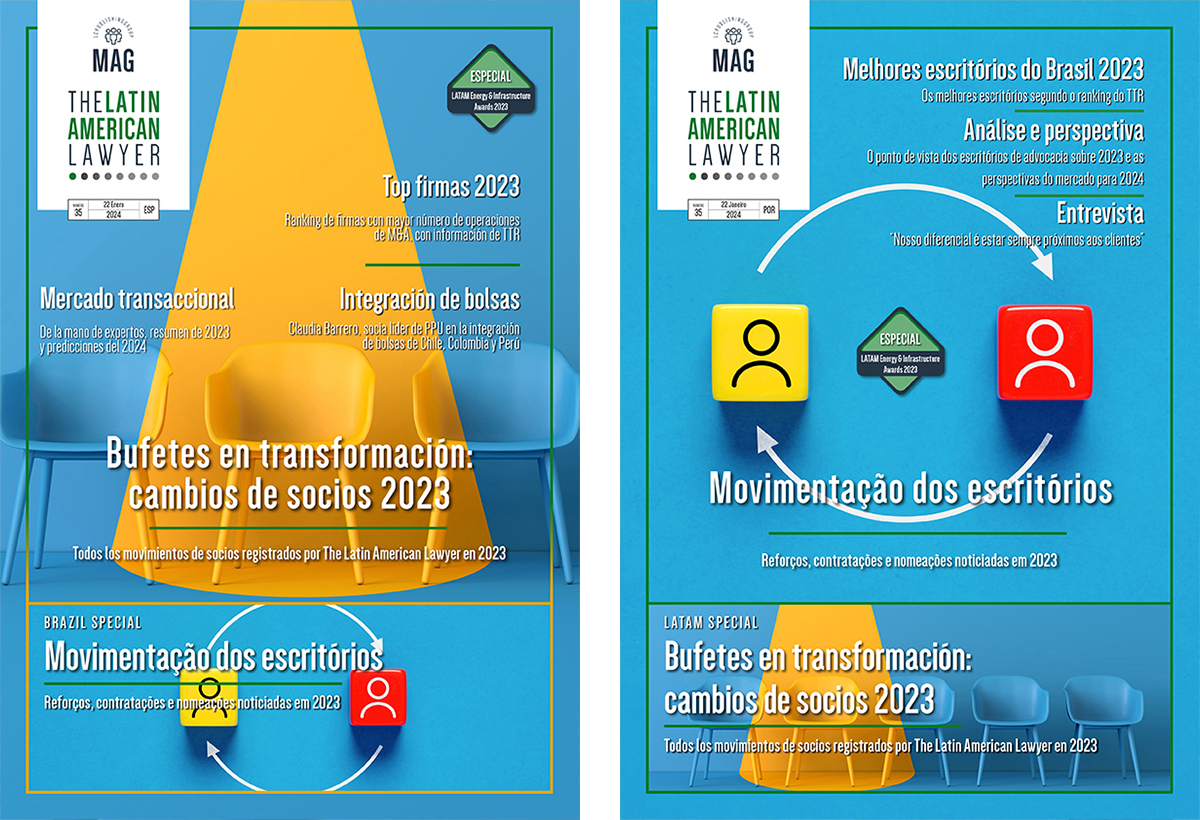Brazilian employment reform a boost to business

More demand for labour expertise in law firms
 Changes in employment legislation in Brazil, which came into effect at the end of last year, provide a fresh element in labour relations as well as seek to increase market efficiency and adapt to a modern economy. Applicable to both new and existing employment contracts, the two main changes to the Brazilian labour reform concern collective bargaining agreements and authorisation for outsourcing, with the aim of reducing the scope for legal action in labour disputes.
Changes in employment legislation in Brazil, which came into effect at the end of last year, provide a fresh element in labour relations as well as seek to increase market efficiency and adapt to a modern economy. Applicable to both new and existing employment contracts, the two main changes to the Brazilian labour reform concern collective bargaining agreements and authorisation for outsourcing, with the aim of reducing the scope for legal action in labour disputes.
However, for Cássia Pizzotti, a partner at Demarest Advogados in São Paulo, despite the reform clearly having the intention to move forward with a more business-friendly situation, there are still concerns how the law will work in practice. “We still have strong resistance against this and practical difficulties to implementing the changes,” she says.
With the impact on workplace culture still uncertain and the scope is unclear, the reform is hailed as a step in the right direction. “Brazil’s labour legislation was known to be rigid and costly, but the reform introduced a substantial renovation, focusing on a more flexible and business-friendly system,” says Dario Abrahão Raba, partner at Mattos Filho in São Paulo. “The reform has changed more than 70 different areas in Brazilian labour law, which means there are broad implications for companies.”
For Ana Vizintini, partner at Trench Rossi Watanabe and based in Rio de Janeiro, it is also significant that in the months that followed the reform, there was a considerable decrease in the number of labour lawsuits filed. She argues that this mainly related to the hardening of the economic sanctions brought by the reform. “In our view, the reduction of lawsuits will stabilise over the next year, which will result in a more appropriate judicial scenario.” 
According to the most recent survey, 450,355 lawsuits were filed before Brazilian Labour Courts between December, 2017 and March, 2018. This number represents a fall of 46% in comparison to the claims filed in the same period of the past year.  For Luís Antônio Ferraz Mendes, partner at the São Paulo office of Pinheiro Neto, the reform means that 2018 will be a key year for reviewing companies’ practices and employment-related routines. “It will also bring several challenges in the litigation sphere, because most of the new changes will start to be tested in court,” he says. Meanwhile, Trench Rossi´s Vizintini predicts there will be plenty of opportunities on both the advisory and litigation side. “Lawyers dedicated and committed to studying the changes brought by the reform will also have good opportunities,” she says.
For Luís Antônio Ferraz Mendes, partner at the São Paulo office of Pinheiro Neto, the reform means that 2018 will be a key year for reviewing companies’ practices and employment-related routines. “It will also bring several challenges in the litigation sphere, because most of the new changes will start to be tested in court,” he says. Meanwhile, Trench Rossi´s Vizintini predicts there will be plenty of opportunities on both the advisory and litigation side. “Lawyers dedicated and committed to studying the changes brought by the reform will also have good opportunities,” she says. 
Faced with an increased demand for legal opinions on handling the reform, some Brazilian law firms are focusing more on the labour law, says Luiz Carlos Amorim Robortella, founding partner of labour law boutique Robortella Advogados in São Paulo. “While official data confirms there has been a substantial decrease in the number of labour claims, it is also expected that there will be an increase of class actions, union claims and complex individual actions,” he explains. “This is one of the reasons why our firm recently decided to focus the practice on this.”
For Antonio Galvão Peres, Robortella Advogados’ managing partner, the labour reform has changed how Brazilian law firms are being categorised. “More than ever, Brazilian corporate labour lawyers tend to be part of full service law firms, boutique firms or specialised firms with tremendous volume of labour claims,” he says. “In other words, this distinction is emphasised due to the new trend on labour conflicts.”














